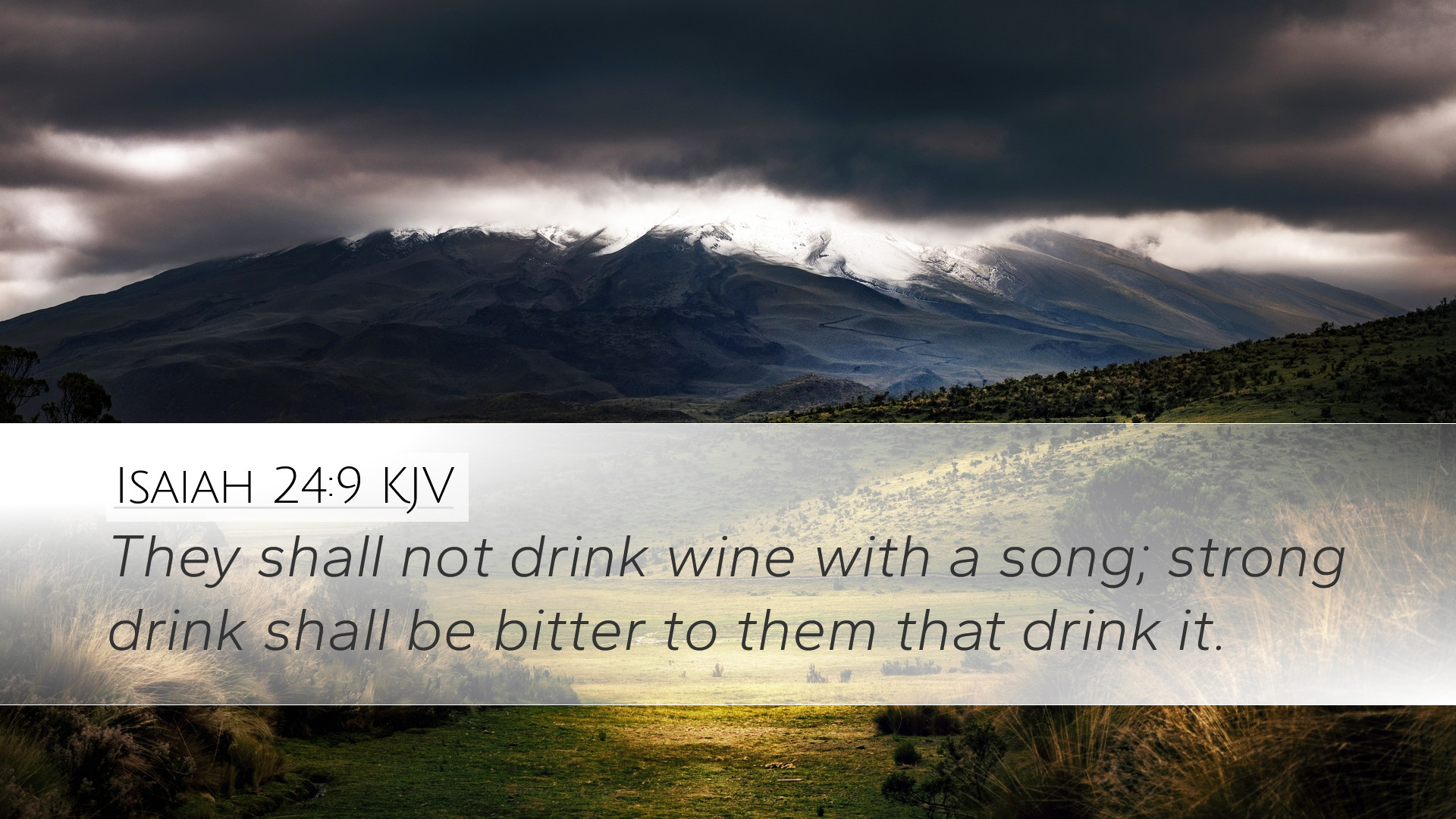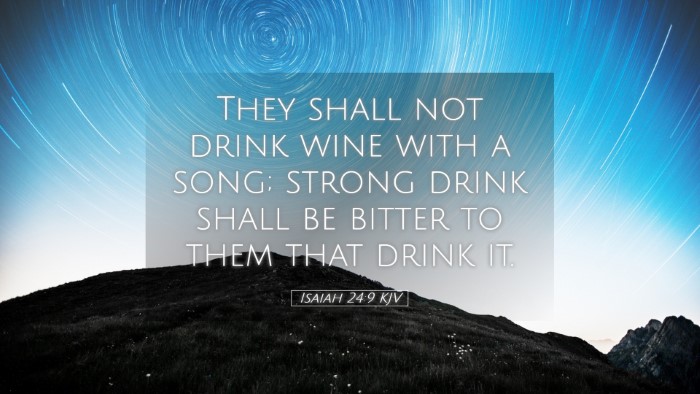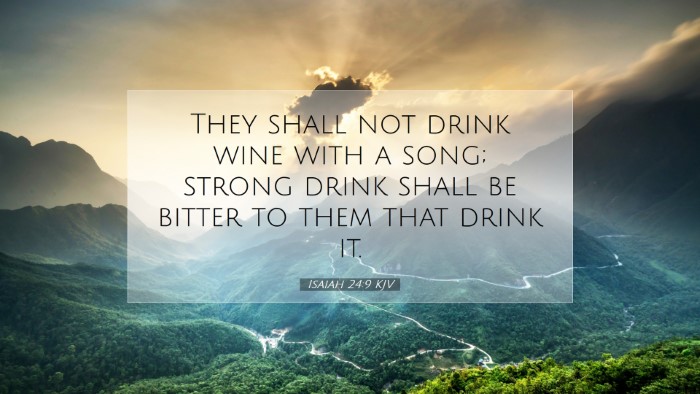Commentary on Isaiah 24:9
“They shall not drink wine with a song; strong drink shall be bitter to them that drink it.”
Introduction
Isaiah 24 marks a significant moment in the book of Isaiah, portraying God's judgment upon the earth and the desolation that comes as a consequence of sin. This verse particularly addresses the sobering reality that the joy typically associated with drinking wine is stripped away in the face of divine judgment.
Contextual Overview
The verses leading up to Isaiah 24:9 describe a world reeling from the effects of sin. Matthew Henry highlights that the “earth is made desolate, it is not only laid waste but laid low.” This judgment reflects the covenant implications of Israel and their rebellion against God.
Detailed Analysis
Social and Cultural Implications
In ancient Israel and surrounding cultures, wine was a symbol of joy, celebration, and prosperity. Albert Barnes notes, “The joy and mirth which attend the use of wine are often the very expressions of cultural and communal celebration.” However, in the context of judgment, this joy is transformed into despair. The verse captures a stark reality: in times of divine retribution, even the most joyful means of celebration become sources of bitterness.
Theological Implications
Isaiah 24:9 serves as a profound theological statement regarding the nature of sin and its consequences. Adam Clarke emphasizes the severity of divine judgment and the resultant alienation from the sources of joy. When God's wrath is poured out, the very blessings that once offered joy—such as wine—are transformed into sources of bitterness. The verse speaks to the totality of God’s judgment, which affects every aspect of existence, including cultural practices and earthly pleasures.
Contrasting the Past and Future
In the past, wine was enjoyed in celebration of God’s blessings. However, the future depicted in Isaiah illustrates a complete reversal of this joy. Matthew Henry notes, “They shall drink without song; they shall be in utter heaviness, for God is departed from them.” This stark contrast emphasizes the spiritual gloom that envelops a people who have turned away from God, illustrating that true joy cannot exist apart from a relationship with Him.
Practical Applications
- Awareness of the Consequences of Sin: This verse serves as a reminder for believers and non-believers alike that the consequences of sin reach deeply into every area of life.
- Recognizing the Source of True Joy: In a world often seeking joy in temporary pleasures, this scripture prompts reflection on the lasting joy that comes from a relationship with God.
- Service and Worship Amid Judgment: Understanding that earthly celebrations can be hollow in the absence of divine connection encourages a more profound commitment to worship and service.
Conclusion
Isaiah 24:9 is not merely a lament for the loss of joy through drink; it reveals the deep connection between spiritual health and earthly experiences of joy. As pastors, students, theologians, and Bible scholars, it is vital to understand that this verse encapsulates a broader theological conversation about the nature of God’s judgment and the human condition. In this way, we are called to navigate life's challenges with the awareness that true joy is found only in steadfast faithfulness to God.


